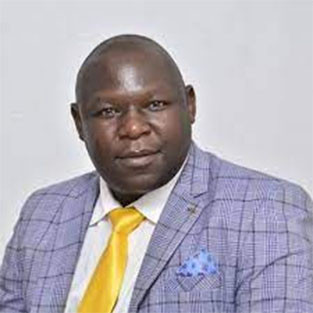
BY EVANS MATHANDA
AFTER 24 years of incarceration at Chikurubi Maximum Security Prison, Jacob Harineck (42) is experiencing a bitter-sweet re-integration process in Norton.
Coming out of prison, his mind was in turmoil; countless questions and scenarios crossed his mind and confusion reigned.
The most painful time for him was that time when fellow inmates received visitors and it killed his heart to see loved ones hugging, chatting and laughing; a prospect that he knew was far removed from possible for him.
“I no longer have a family and I do not know where to start from,” Harineck murmured.
“Is it possible to have friends again? What about finding love? My biggest fear is to face the community members where I came from, after the murder crime that I am serving time for. In as much as I wished the community to give me another chance, I knew it was a difficult situation,” he said in a somber voice.
Harineck was convicted of murder in 1997 when he was 17 years old after he killed Mary Jackson a white farmer in Marondera over a salary dispute. Harineck had gone for six months without getting paid, he told The Standard.
He claimed Jackson was taking advantage of his age to deprive him of his salary and benefits.
- Chamisa under fire over US$120K donation
- Mavhunga puts DeMbare into Chibuku quarterfinals
- Pension funds bet on Cabora Bassa oilfields
- Councils defy govt fire tender directive
Keep Reading
“I was 17 years old then and the crime took place where I was working at a farm in Marondera. I was arrested on June 23, 1997 and on September 15 I was found guilty of the offense. Initially, I was given the death sentence, which was then reduced to life in prison”
Harincek is one of many ex-offenders, who face challenges in trying to reconnect with the society.
Zimbabwe Prison and Correctional Services ZPCS deputy spokesperson Superintendent Peter Chaparanganda said discrimination of ex-offenders was regrettable in Zimbabwean society.
“Discrimination of ex-inmates in any form is very unfortunate and regrettable in our society. We do not condone it and we encourage harmonious co- existence of all citizens of the country regardless of one’s criminal history,” Chaparanganda said.
Harineck was released on presidential pardon in May last year together with 2 521 other inmates and he is in the process of re-integration.
He described the challenges he faces in reuniting with the community.
“When I came out of prison last year, I did not know where to start from, since I was jailed at 17. My parents passed on when I was five years old, which is why I dropped out of school to work at a farm. Most of my close relatives died when I was in prison. For that reason, it seems difficult to reunite with the community when I don’t have my family around me. I believe the community would have welcomed me easily if I had my parents around.
“Re-integration of ex-offenders is really a process which needs attention,” he explained.
Harineck noticed that after ex-offenders had served their jail terms, going through restorative justice and rehabilitation process, the society still needed to be assisted through various programs to avoid issues of stigma.
“Since the day I was released from prison, I have realised that society still finds it difficult to welcome the former inmates especially when one committed a murder offence, or even just the fact that you were once a prisoner,” he said.
“People seem to think that you are still the same person,” he sighed.
Chaparanganda decried insufficient resources in the correctional service department, which he said impeded smooth rehabilitation and reintegration of ex-offenders.
“Zpcs has social workers that do follow ups of ex-inmates that are released from imprisonment. However, due to inadequate resources and the huge number of inmates who are supposed to be regularly visited, the organization ends up taking a long time before visiting each and every released inmate.
However, Chaparanganda said despite lack of resources, Zpcs had some programmes aimed at re-integrating ex-inmates
“We have a number of programmes which are aimed at educating the community so that they can appreciate rehabilitation being done by the organization,” he said.
“Some of the programmes are ‘Another Chance’ which is meant to mediate between the offender and the offended as well as showing rehabilitation activities that take place in prison”
The Prisoners Entrepreneurial Development Zimbabwe has a mandate to promote evidence based policies on the employment of ex-offenders and the abolishment of the criminal record to promote a safe environment for ex-inmates in society.
For Harineck, finding love became one of the most stressful issues in his life after prison as he struggled to discuss love affairs with women.
Having been sentenced as a teenager, proposing love for the first time became very difficult.
“Being in jail for a long time contributed negatively to my wellbeing as l had to master and adjust to the new way of living,” he lamented.
“Finding courage and the guts to propose to a lady was never easy for me since I was sentenced when I was very young. However, l was lucky and God gave me Choice Mukundwa to be my wife and the love of my life. I was honest enough to tell her that l was in prison for 24 years and l was ready for any outcome whether she was going to accept or reject me”
His wife, Mukundwa said she accepted Harineck as her husband because he was open from the first day.
“When he told me that he was imprisoned for 24 years after he murdered someone, I was scared but the fact that he was open enough to tell me everything and his experience in jail, I accepted him,” she said.
Mukundwa encouraged community members to welcome ex-offenders without calling them “names” to ensure their psychological peace is achieved during the process of reintegration and rehabilitation of former inmates.
“My advice to community members is that we have a big and important part to play during the process of re-integrating ex-offenders. Let’s welcome them and make them realize that crime is not good for our society in order to discourage them from committing the same crimes again because society rejected them,” Mukundwa said.
Lovemore Chikwanda, founding director of Jedidiah Trust, a non-profit making organisation that was formed to empower inmates and their families during and after incarceration said the government needed to improve rehabilitation of ex-offenders.
“Issues with regards to ex-offenders coming back to the society have not been dealt with thoroughly,” Chikwanda said.
“We applaud the government through ZPCS for what they are doing in terms of rehabilitating offenders. But the problem comes during the reintegration process. The survivors of the crime committed are not prepared in any way to receive the inmates back to the community. The family of the offender does not receive counselling after the incarceration of their relative and neither are they taught how to treat or receive him when he has finished serving.”
He reiterated that the government and various stakeholders should join hands to deal with issues of discrimination.
Zimbabwe Association for Crime Prevention and Rehabilitation of the Offender (Zacro) said Zimbabwe’s rehabilitation and reintegration of ex-offenders lacked sound and effective planning.
Harineck faces the prospect for a brighter future after he finally got help through Jedidiah Trust and he is now working as a supervisor at a farm in Chegutu.









